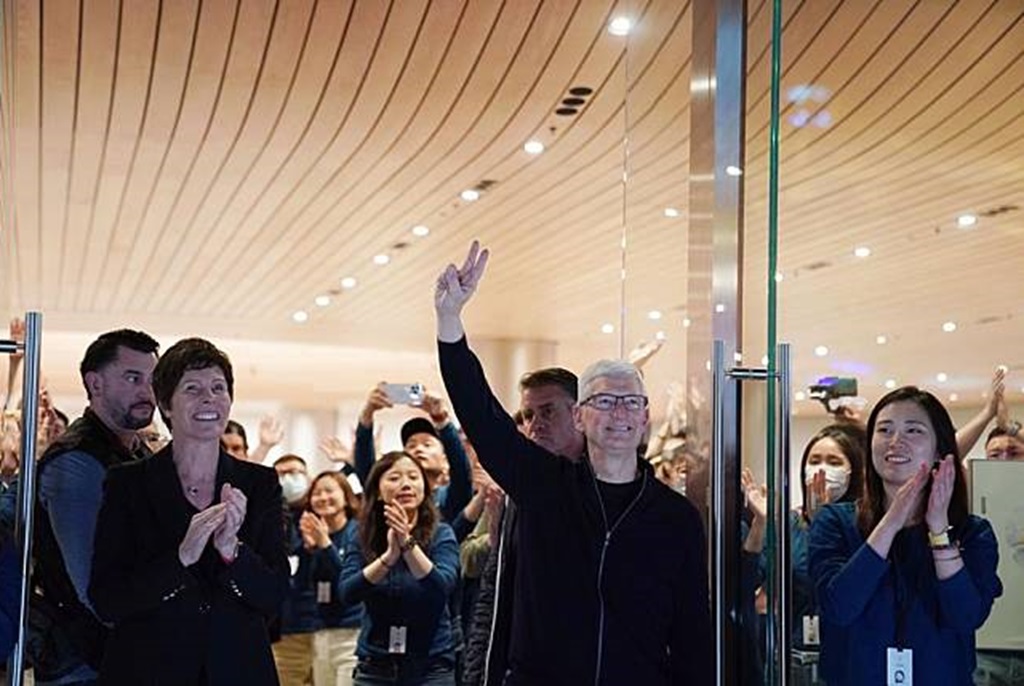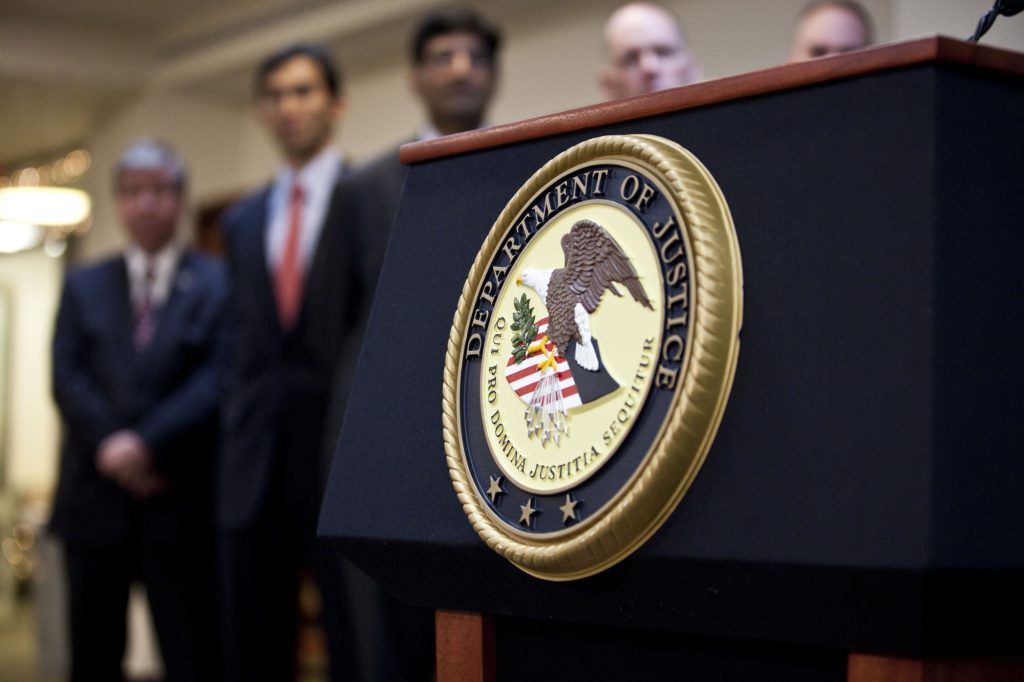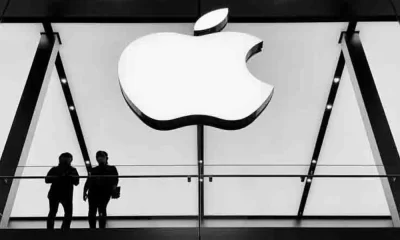Business
Apple Inc Opens Flagships Store in Shanghai Despite Plummeting Sales

Apple Inc CEO Tim Cook opened Apple’s newest flagship shop in Shanghai, China, in front of a big audience that had waited overnight. Cook, opened the store’s doors and made a victory sign with his fingers before meeting the first few customers who had begun waiting outside the day before.
Apple’s new store, which faces Shanghai’s famous Jing’an Temple, is the company’s 57th in China and eighth in the Chinese financial capital. It is also the company’s second-largest flagship shop, following its Fifth Avenue location in New York City.
Its launch comes as Apple faces declining iPhone sales in China and more competition from domestic rivals like Huawei. According to consultancy estimates, Apple’s iPhone sales in China decreased 24% year on year during the first six weeks of this year.
Tim Cook, accompanied by Deidre O’Brien, Apple’s senior vice president of retail and people, made no public comments at the store. The store’s launch brought hundreds of onlookers, with Chinese police stepping in to control the mob.
He told local media sources on Wednesday that he met with Apple’s Chinese suppliers, including Wang Chuanfu, founder and president of BYD, whose electronics branch sells components to the US company.
Cook is slated to travel to Beijing to join the China Development Forum, which brings together foreign CEOs and top Chinese leaders.
US Government Sues Apple Inc
Meanwhile, the US government has sued Apple, charging that the company leveraged strong demand for its iPhone and other goods to raise service rates and harm smaller competitors.
The federal Department of Justice and 15 states launched the action on Thursday, marking the Biden administration’s first significant antitrust move against the smartphone maker.
Apple has joined a list of large digital companies sued by US regulators, which includes Google, Meta Platforms, and Amazon.com under the administrations of both former President Donald Trump and President Joe Biden.
“Consumers should not have to pay higher prices because businesses break antitrust laws,” Attorney General Merrick Garland said in a statement. “If left unchallenged, Apple will only continue to strengthen its smartphone monopoly.”
The Justice Department claims that Apple exploits its market advantage to extract more money from customers, developers, content creators, artists, publishers, small companies, and retailers.
The 88-page lawsuit, filed in US federal court in Newark, New Jersey, stated that it was focused on “freeing smartphone markets from Apple’s anticompetitive and exclusionary conduct and restoring competition to lower smartphone prices for consumers, reducing fees for developers, and preserving innovation for the future”.
Apple Inc responded in a statement, stating, “This action challenges who we are and the principles that distinguish Apple products in intensely competitive marketplaces. If successful, it would limit our capacity to produce the type of technology that customers expect from Apple — where hardware, software, and services come together.”
Apple has already faced antitrust investigations and orders in Europe, Japan, and Korea, as well as litigation from corporate competitors like Epic Games.
One of Apple’s most profitable companies, the App Inc Store, which charges developers up to 30% commission, has already weathered a lengthy court fight under US law from Epic.
While the complaint concluded that Apple did not break antitrust rules, a federal judge ordered Apple to allow users to pay for apps using links and buttons rather than Apple’s in-app payment fee.
In Europe, a new rule known as the Digital Markets Act, which went into force earlier this month, has destroyed Apple’s App Store business model. Apple intends to let developers to create their own app shops — and, more significantly, pay no commissions — but rivals such as Spotify and Epic claim Apple is still making it difficult to offer alternative app stores.
The verdicts on Apple’s App Store compelled the Justice Department to investigate Apple’s other practices for potential complaints, such as how Apple enables outside corporations access to the CPUs and sensors in the iPhone.
Consumer hardware companies, such as Tile Inc, which makes smart trackers, have long complained that Apple Inc has limited the methods in which they may work with the iPhone’s sensors while competing goods have more access.
Several years after Tile launched a comparable device, Apple began offering AirTags, which can be attached to items such as vehicle keys to assist customers find them when they are misplaced.
Similarly, Apple has blocked access to the iPhone’s chip, which allows for contactless payments. Apple Pay is the only way to add credit cards to the iPhone.
Apple has also received criticism over its iMessage service, which only works on Apple devices.
Apple has long stated that third-party developers have limited access to some user data and iPhone hardware for privacy and security reasons.

































